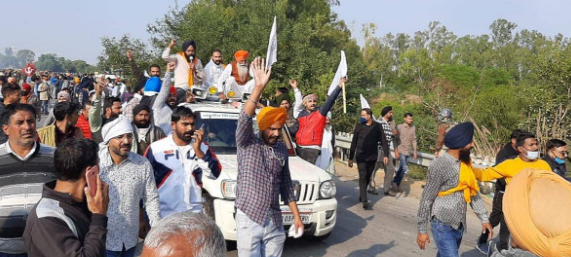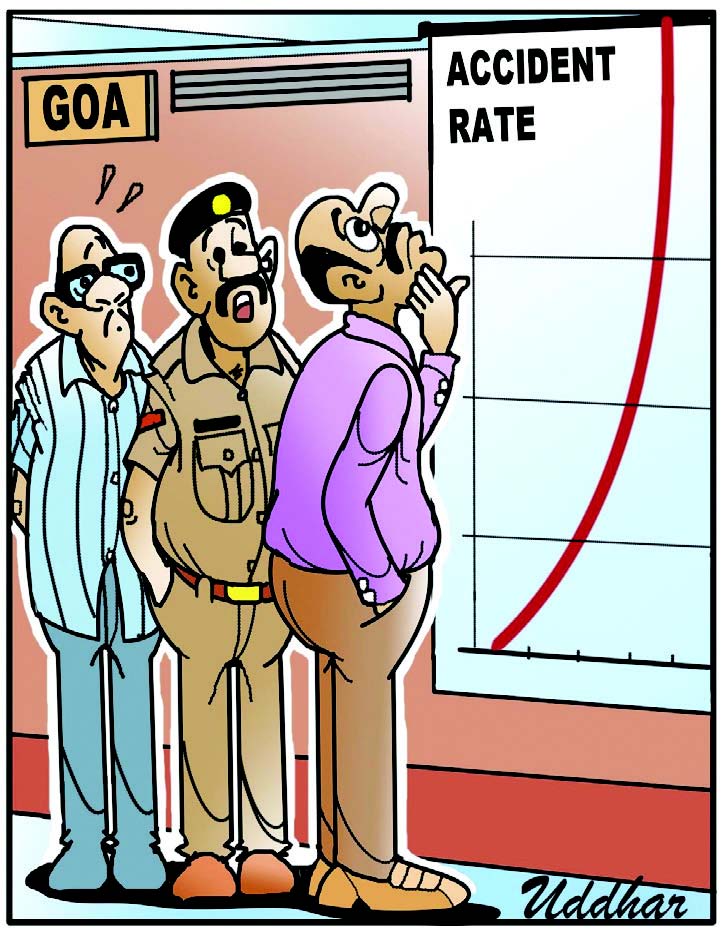
Netaji Subhash Chandra Bose had once given a call “Dilli Chalo” to protest against the British Raj and it became a movement in the pre-independent India. The same is being done although for completely different reason by the Punjab farmers. Just to recall Mahendra Singh Tikait, a well known farmer leader in the western area of Uttar Pradesh who was also President of the Bharatiya Kisan Union, a farmers' movement, and was revered as the farmers' “second messiah” after the Prime Minister, Chaudhary Charan Singh, shot into limelight with his most spectacular show at Delhi's Boat Club lawns in 1988 when nearly five lakh farmers from western Uttar Pradesh occupied the entire stretch from Vijay Chowk to India Gate.
The then Delhi's power elite held out until the stench became too much to bear and after a week, the Rajiv Gandhi government bowed to his 35-point charter of demands that included higher prices for sugarcane and the waiving of electricity and water charges for farmers. This iconic event must be in the minds of Central government as well as the protesting farmers who are presently at logger heads.
According to farmer unions in Punjab and Haryana the recent laws enacted at the Centre will dismantle the minimum support price (MSP) system. Over time, big corporate houses will dictate terms and farmers will end up getting less for their crops, they argue. Farmers fear that with the virtual disbanding of the mandi system, they will not get an assured price for their crops and the commission agents who also pitch in with loans for them, will soon be out of business. Hence their key demand is the withdrawal of the three laws which deregulate the sale of their crops. The farmer unions could also settle for a legal assurance that the MSP system will continue, ideally through an amendment to the laws.
At the same time the farmers as mandated by law and rightfully so do not pay any income tax are also pressing for the withdrawal of the proposed Electricity (Amendment) Bill 2020, fearing it will lead to an end to subsidised electricity. The 'Delhi Chalo' call was given by the All India Kisan Sangharsh Coordination Committee and thereafter several other organisations including Rashtriya Kisan Mahasangh and factions of the Bharatiya Kisan Union (BKU) came out in support.
The march is being held under the banner of Samyukta Kisan Morcha. The Rashtriya Kisan Mahasanghathan, Jai Kisan Andolan, All India Kisan Mazdoor Sabha, Krantikari Kisan Union, Bharatiya Kisan Union (Dakaunda), BKU (Rajewal), BKU (Ekta-Urgahan,) BKU (Chaduni) are among the participants.
The Narendra Modi government on the other hand is of the view that the new laws will give more options to the farmers to sell their crops and get them better prices. It had also promised in the past that the farmers’ income will be doubled. It has assured that there is no move to end the MSP system, and the new Acts do not refer to it. Before the Delhi Chalo agitation began, the Centre had invited representatives from over 30 farmer unions for a meeting with Union Agriculture Minister Narendra Singh Tomar on December 3. An earlier meeting on November 15 had remained inconclusive.
At the same time Union Home Minister Amit Shah on Saturday offered immediate talks if the farmers’ protests were carried on from the government designated area than on the streets and highways. However, rejecting Amit Shah’s offer the leaders spearheading the farmers’ agitation have set fresh terms for talks with the Union government, demanding the Centre name and authorise a Cabinet committee or a group of ministers for future discussions, with the All India Kisan Sangharsh Coordination Committee (AIKSCC). The farmers’ decision came after a meeting on Sunday, shortly after Prime Minister Modi, indicated support to farm laws in his Mann ki Baat address, saying the "agricultural reforms" have "unshackled" the farmers and given them "new rights and opportunities".
Surprisingly, there is hardly a buzz in the other major farming States. Maharashtra, with a massive agricultural population and an established record of farmer politics and protests, is calm. But then why are Punjab farmers who are the richest in India, agitating? It is surely a sign of politics which seems to have been done by the politicians to rake up issues against the government and at the same time gain sympathy of the farmers as they are a major vote bank for all political parties. The situation is beginning to turn into a face-off between the farmers and the Union government and political activists taking this opportunity have also jumped in the fray in favour of the farmers.
